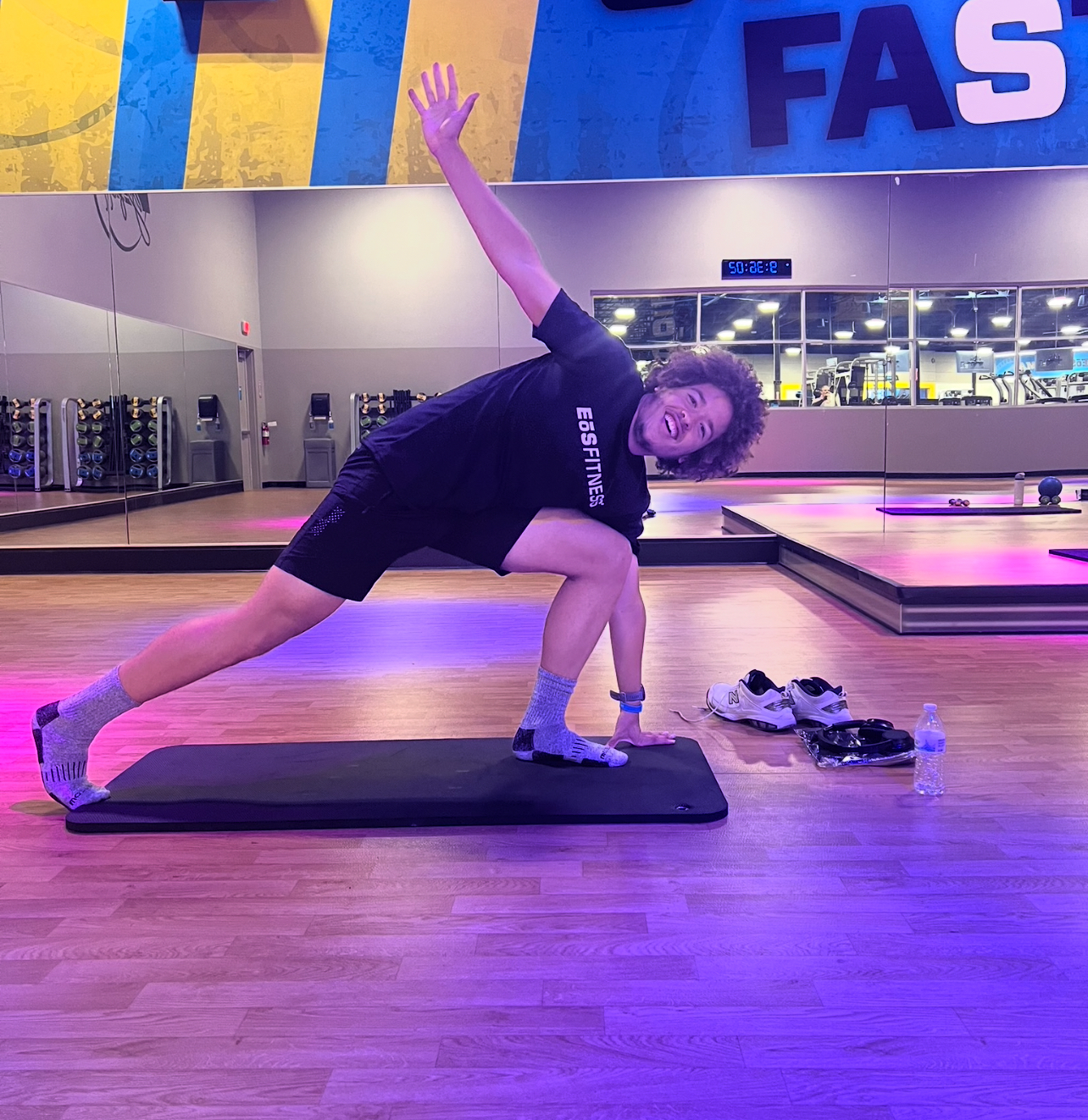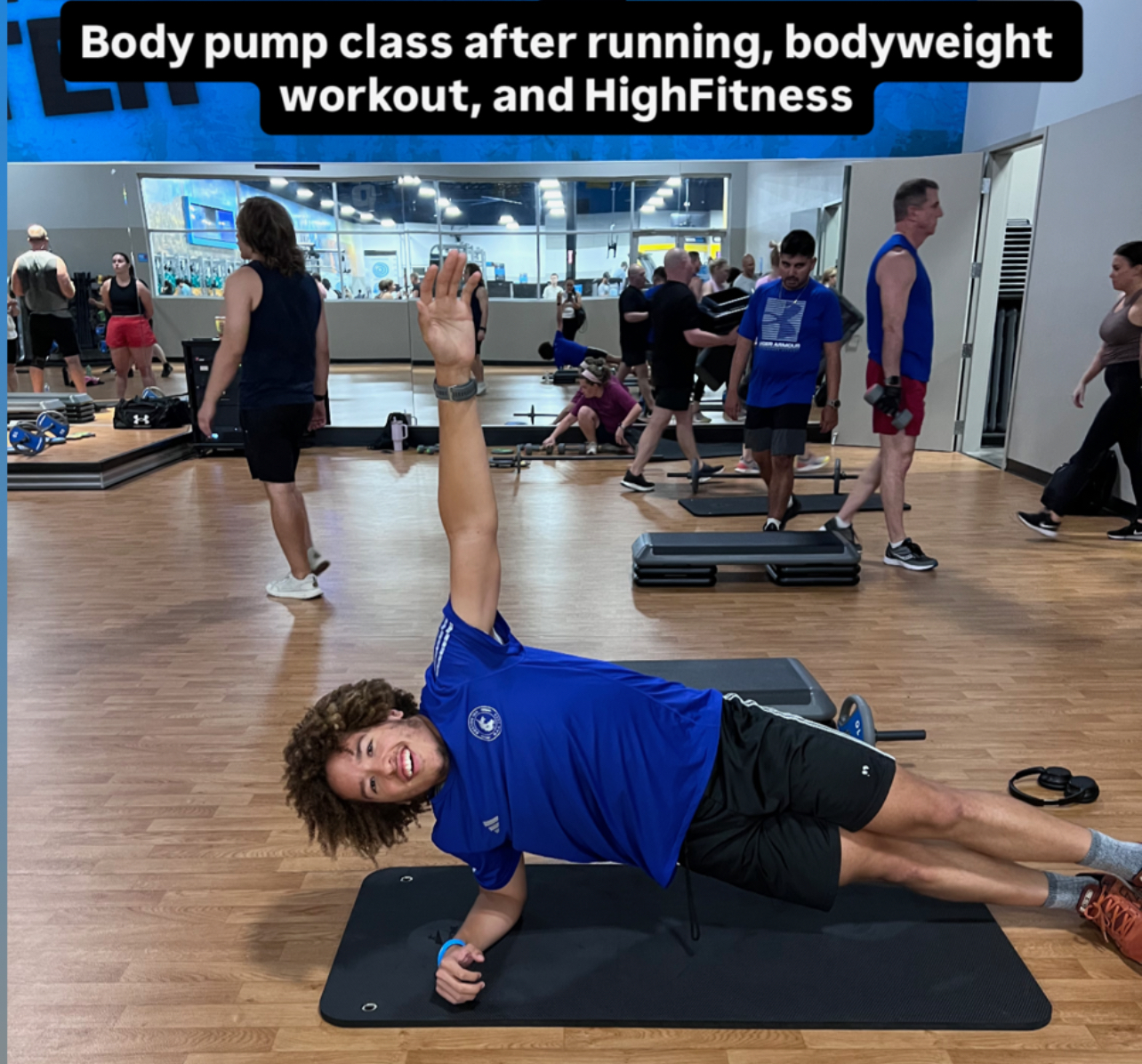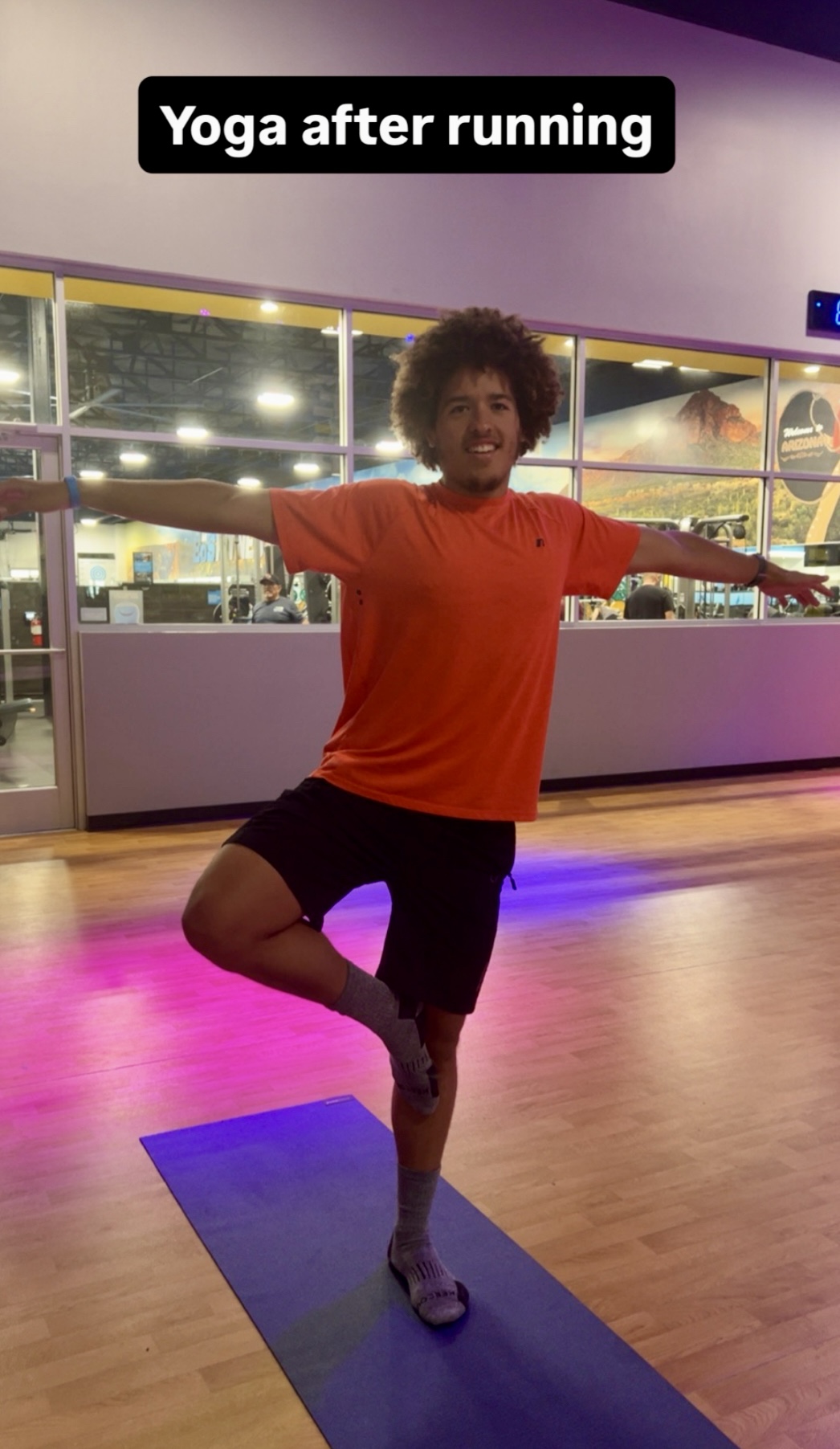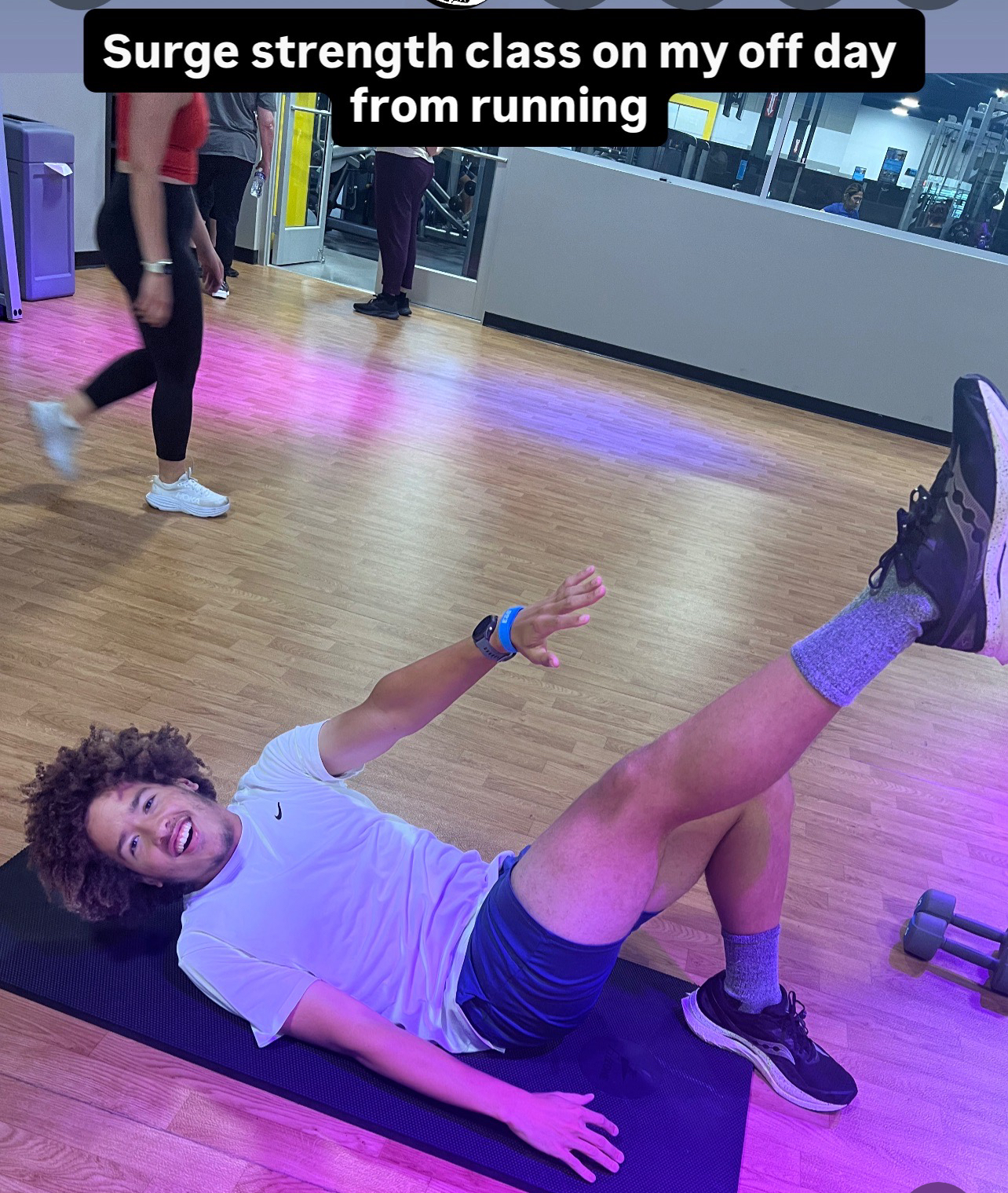
Running is often seen as a solitary, high-impact outlet. Yet for one runner who has completed the Beantown Marathon, Boston Marathon, Falmouth Road Race, the NYC Half, and is now preparing for Chicago, the key to lasting strength and growth comes from far more than just pounding the pavement. Conrad Miller-Fabregas, a proud athlete with autism, has a motto: Movement Matters. This has guided Conrad toward a more holistic approach to training.
Conrad crushed the 2025 Boston Marathon in just 3 hours and 10 minutes, despite suffering a serious muscle strain at mile 14. That moment pushed him to think about training differently. What once began as a podiatrist’s recommendation to try Pilates soon turned into Conrad’s own commitment to exploring cross training. The variety, whether Pilates, yoga, or strength work, helped him build stamina, balance, and resilience—ensuring that every time he took the start line, he felt prepared both physically and mentally.
A Broader Definition of Movement
Each race Conrad has completed taught him something new about the power of movement. “I enter Chicago energized and confident because cross training has made my preparation more complete,” he explained. By weaving in Pilates, yoga, threshold workouts, and even dance, his preparation has strengthened not just his legs but his entire body, balance, and recovery process.
For Conrad, movement isn’t defined by running alone. It includes breathing exercises, stretching, dancing, or simply smiling and holding it.
“Moving is winning,” he said. “Whether it is breathing exercises, stretching, yoga, walking, rolling through in your wheelchair, dancing, jogging, or running a marathon.”
As a result, he’s noticed sharper mental focus, quicker recovery times, and fewer injuries. “Greater flexibility has opened up my stride, and strength training has given me confidence, especially in long-distance races,” he shared.

The Building Blocks of Cross Training
Cross training doesn’t have to be a rigid schedule, or at least it isn’t for Conrad. Cross training can be a flexible routine tailored to your personal energy levels, time available, or body awareness. And yes, these can change on any given day. Conrad practices a variety of training methods:
· Pilates for core strength and injury prevention
· Yoga for recovery, flexibility, and mental focus
· Dance to build agility and keep training fun
· VO₂ max and threshold workouts to sustain endurance at higher intensities
The result? A complete system that doesn’t just prepare his legs to run; but trains the whole body so that all muscles can work together.

Balancing Training and Recovery
The key to sustainability isn’t just in moving, it’s in resting too. Conrad compares his week to a puzzle: Some days highlight running, others cross training, and at least one focuses on recovery. It’s a philosophy that applies both on the road and in life as a full-time student balancing academics and leadership roles. True growth, both as an athlete and as a person, comes from knowing when to push and when to pause.

Advice for Every Athlete
When asked what they would say to athletes who might think cross training is unnecessary, Conrad’s answer was simple: try it. Cross training doesn’t need to follow strict rules or look the same for everyone. It can be as small as ankle rolls, stretching your arms toward the sky, tapping your fingers to music, or chair yoga. “Every choice adds up over time,” he said.

At its core, cross training isn’t just about stronger performance; it’s about embracing movement in all its forms.
“I believe we are all born with the marathon gene. We must only figure out how to cultivate it,” he said. “Join the Movement Movement, because Movement Matters.”
Inclusive health content is sponsored by Tufts Health Plan, the Official Health Insurance Partner of Special Olympics Massachusetts. Tufts Health Plan and Special Olympics Massachusetts are dedicated to promoting healthy lifestyles through resources that support individuals with and without intellectual disabilities. To learn more about Tufts Health One Care, a health plan for those with disabilities who have Medicare and Medicaid, visit TuftsHealthPlan.com/SOMA



.png)
.png)
.png)
.png)



%20logo%20sm.svg)
